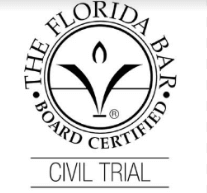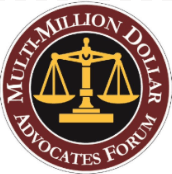According to U.S. News & World Report, Florida has the highest percentage of residents in the country aged 65 and older. Seniors make up more than 20 percent of the state’s population. As a result, it should come as no surprise that Florida has a large number of nursing homes, assisted living communities, and other facilities to care for senior citizens.
The high demand for senior care has created a massive nursing home industry in Florida. Unfortunately, the focus on profit over the health and safety of residents creates a high risk of nursing home abuse and neglect.
Kogan & DiSalvo has extensive experience representing the victims of nursing home abuse and their families in claims against facilities throughout the state. Our attorneys handle cases in areas including:
If you or a loved one has suffered neglect or abuse in a nursing home, assisted living center, or other care facility, Kogan & DiSalvo can help. Talk to a Florida nursing home abuse lawyer by calling (561) 375-9500 today. Your initial consultation is free.
What Protections Do Nursing Home Residents Have?

Florida has extensive laws protecting the rights of nursing home residents. State law mandates that the rights afforded to all nursing home residents are made public by the nursing home staff.
The rights of nursing home residents in Florida include:
- The right to religious worship
- The right to uncensored and unimpeded communication by mail and phone
- The right to see visitors at the facility
- The right to access medical or legal counsel
- The right to advocate for themselves in commenting on facility policies, bringing grievances, etc. without fear of reprisal
- The right to participate in groups and activities offered by the facility
- The right to examine the facility’s health and safety inspection results
- The right to manage their own finances
- The right to be informed of services provided by the facility and what services are subject to additional charges
- The right to adequate healthcare and support
- The right to participate in decisions concerning medical care, including the right to choose their own medical providers and pharmacies and the right to refuse treatment
- The right to be notified of transfers and discharges and the right to challenge those decisions
- The right to privacy
- The right to be treated with dignity and respect
- The right to be free from abuse
When a nursing home facility or its employees violate these rights, they risk the well-being of their residents. Our Florida nursing home abuse lawyers can review your case for potential violations when assessing the liability of the facility.
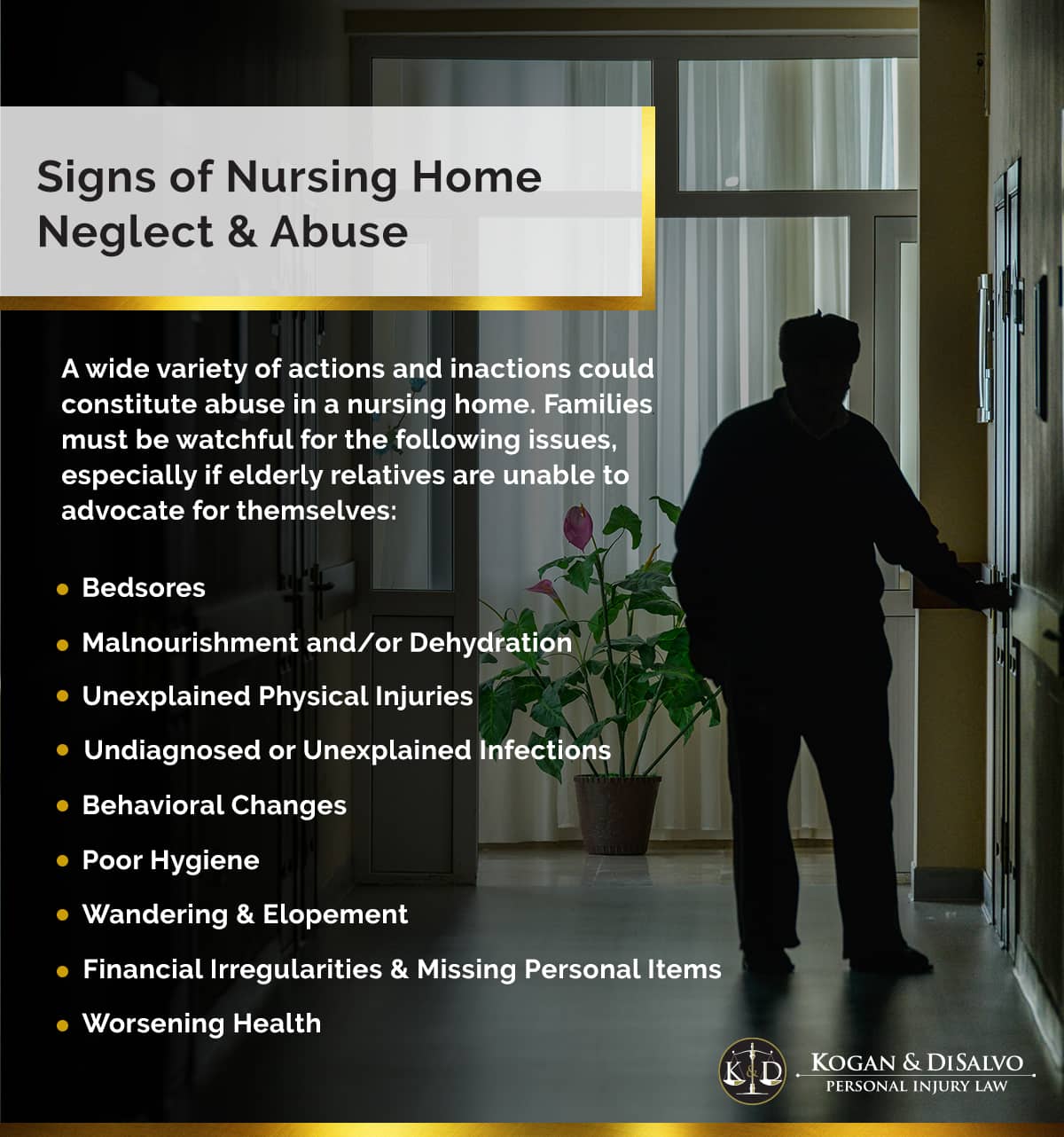
What Constitutes Abuse in a Nursing Home?

A wide variety of actions and inactions could constitute abuse in a nursing home. While the term abuse often conjures images of physical violence, many claims involve mistreatment without any form of physical assault.
Common types of nursing home abuse include:
Physical Abuse
Physical abuse is any form of physical assault directed toward a nursing home resident. This abuse may include an assault against the resident in the form of:
- Pushing and shoving
- Punching
- Slapping
- Choking
- Biting
In some of the more harrowing instances, physical abuse may also include the unnecessary use of physical or chemical restraints on a nursing home resident.
Emotional Abuse
Emotional abuse is any action intended to subject a resident to harassment or threats. This form of abuse often leads to fear, degradation, confusion, and other forms of emotional distress.
Sexual Abuse
Any non-consensual sexual act is sexual abuse. While many sexual abuse claims involve nursing home employees, other claims relate to incidents between two residents. In some cases, a nursing home resident may not have the capacity to consent at all.
Financial Abuse and Exploitation
Financial abuse is any exploitation of a resident through the use of intimidation or fraud. Nursing home residents may be in a vulnerable position that makes them more likely to fall for scams that result in them handing over assets or gifting away their life savings without realizing they are being exploited.
What Constitutes Neglect in a Nursing Home?

Neglect is a form of abuse that is not always intentional. While some cases of neglect are due to a caregiver’s desire to harm the resident, other instances occur due to a lack of resources or understaffing at the facility.
Examples of nursing home neglect include:
- Failure to provide residents with adequate hydration
- Failure to serve food to residents (this includes irregular scheduling of meals and errors in serving meals that meet residents’ health requirements, dietary restrictions, and prescribed medications)
- Failure to assist residents with mobility needs; accidental falls are common in nursing homes, and they often occur because residents don’t have adequate support when walking, standing up, getting out of bed, etc.
- Failure to assist residents with self-care activities such as feeding, getting dressed, bathing, grooming, cleaning living quarters, and more
- Failure to administer medications to residents, including administration of the wrong medication, errors in dosage, etc.
- Failure to monitor patients for medical conditions and provide necessary care
- Failure to supervise residents for behavioral issues such as aggression, isolation, etc.
Neglect of the property can also make a nursing home or other care facility unsafe. Slip and falls and other injuries may occur due to poor cleaning and maintenance, while negligent security can put residents at risk of victimization by criminals who unlawfully enter the premises.
As with the owners of any kind of property, nursing homes can be held accountable for negligence in a premises liability claim. An experienced nursing home abuse lawyer can investigate the circumstances of the neglect to identify all of the liable parties in your case.
What Are the Signs of Nursing Home Abuse and Neglect?

It often falls on the families who have loved ones in nursing homes to detect issues of neglect and abuse. Abusive caregivers and staff often capitalize on the vulnerability of seniors to mistreat and exploit their charges. Further complicating matters is the fact that many elderly nursing home residents are unable to advocate for themselves – or they may be too afraid of further abuse to speak up.
Some of the most common signs that a nursing home resident is being abused or neglected include:
Bedsores
Seniors who are bedridden or have difficulty moving independently are at risk of developing decubitus ulcers (better known as bedsores). Bedsores are extremely painful and carry a high risk of infection. They are often a major sign of nursing home neglect.
Malnourishment and/or Dehydration
Ensuring that residents are fed and get enough fluids are among the most basic duties of the staff at nursing homes. If your loved one is suffering from malnutrition or dehydration, the facility may be neglecting his or her needs.
Residents who are malnourished may suffer significant, unexplained weight loss. Overall decline in health and energy may also occur as a result of malnutrition and/or dehydration.
Unexplained Injuries
Cuts, bruises, bone fractures, and other injuries may be the result of abuse (such as a violent attack by a caregiver or another resident) or neglect (such as a fall that occurs due to inattention on the part of a caregiver). If the facility doesn’t notify you of the injury immediately or provides an unsatisfactory explanation for what happened, you may need to take steps to ensure your loved one is safe.
Undiagnosed or Unexplained Infections
The immune system can become less effective with age. As a result, seniors are at greater risk for a wide range of infections.
Urinary tract infections (UTIs) are especially worrisome. They may occur due to the neglect of nursing home staff (especially among residents who use urinary catheters). In extreme cases, UTIs (as well as sexually transmitted diseases) may occur as a result of sexual abuse or assault.
Other conditions, such as sepsis, infections of the skin and soft tissue caused by bedsores, or respiratory infections such as pneumonia and bronchitis, can occur due to unsanitary conditions or negligent medical care.
Behavioral Changes
It is not uncommon for seniors in nursing homes to experience depression, anxiety, and other mental health issues, especially if they are new to the facility. However, if these issues persist or get worse (potentially resulting in aggressive, antisocial, or isolating behavior), it may be a response to abuse or neglect.
Be especially watchful of how your loved one acts around members of staff and other residents. They might become frightened or angry in the presence of individuals who mistreat them.
Poor Hygiene
With qualified nursing, residents of long-term care facilities should be clean and well-groomed. If your loved one appears to be consistently unbathed, disheveled, and wearing unclean or damaged clothes, these could all be signs of neglect.
Wandering and Elopement
Residents who suffer abuse or neglect may wander the halls or grounds of the facility. Without proper supervision or support, they could suffer injury.
A more serious form of wandering, elopement, occurs when the resident leaves the facility. The danger is magnified because the senior may get lost, hit by a car, and more.
Though some cases of wandering and elopement are intentional (the senior may be trying to escape an abuser or leave a substandard living situation), others are the result of negligence on the part of the facility and its staff. Seniors with dementia are at a particularly high risk of wandering and elopement, and these incidents can end in tragedy if the nursing home fails to supervise residents with neurological and cognitive disorders.
Financial Irregularities and Missing Personal Items
Bounced checks, unexplained withdrawals, and missing payments from Social Security and retirement accounts are all potential signs of financial abuse in a nursing home setting. Unscrupulous staff members may coerce residents or trick them for financial gain. This can result in financial penalties and debts that affect residents and their families.
Staff members may also steal cash and personal belongings from residents. In addition, vulnerable seniors may be targets for identity theft.
Worsening Health
Elderly nursing home residents often live in long-term care facilities because they are no longer able to care for themselves. Nursing homes have a responsibility to provide the skilled care that seniors and their families cannot.
When staff members fail in this duty, however, residents may experience a decline in health due to poor management of health conditions, medication errors, and other issues of negligence.
Can You Sue a Nursing Home for Neglect or Abuse?
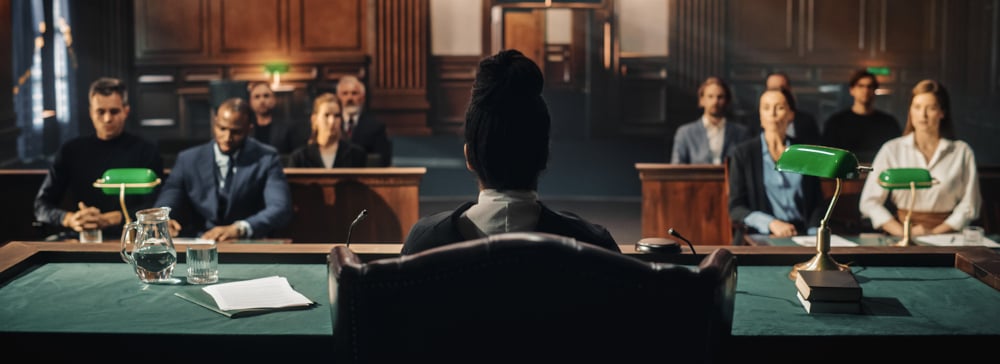
Nursing homes and other long-term care facilities are responsible for the conduct of their employees. If your elderly loved one is neglected or abused by a staff member or caregiver at a nursing home, both the individual employee and the facility itself will generally be liable.
In addition to the negligence or misconduct of one or more employees, negligence on the part of the nursing home may also be a factor in your case. Common issues in nursing home abuse and neglect claims include:
- Understaffing: Hiring qualified staff is expensive. As a result, it is not uncommon for nursing homes to hire fewer employees and to require staff members to care for more residents. This is a recipe for disaster, as overworked staff are more likely to make mistakes and even take out their frustrations on the residents in their charge.
- Inadequate training: Similar to issues of understaffing, nursing homes may also try to save money by hiring employees who don’t have the experience and qualifications to provide care for seniors. This increases the risk of errors that can cause serious injury to residents.
- Lack of supervision: Neglect and abuse can go unchecked if nursing home administrators fail to supervise employees. Poor oversight may also adversely affect residents, increasing the risk of conflict between residents, outbreaks of infectious diseases, wandering and elopement, and more.
- Misuse of equipment: A wide variety of machines and devices enable nursing homes to provide superior care to residents. Unfortunately, without proper training and maintenance, these devices can cause more harm than good. Hydraulic lifts are among the most common machines in nursing homes subject to misuse and failure. Residents may suffer serious injuries and even die due to issues related to mechanical lifts and hoists.
- Medication errors: Nursing home residents often take a wide variety of medications. These meds must be administered properly to help elders manage pain, reduce the symptoms of chronic conditions, and more. Serious complications can occur when residents don’t get the medication they need or get too much of a prescribed medication.
Our nursing home abuse lawyers thoroughly investigate to determine how the resident came to harm. Based on the evidence, we build a strong claim against all liable parties on your behalf.
What Are the Elements of a Nursing Home Abuse or Neglect Claim?

The elements of negligence law in a nursing home abuse case are the same as any other personal injury lawsuit. To prove negligence, a plaintiff must prove that four elements exist: duty of care, breach of that duty, causation, and damages. Any claim that fails to meet each of these factors may not be viable.
Our experienced nursing home abuse lawyers in Florida will assess the evidence in your case and develop a strategy to prove each of these elements:
- Duty of care: To recover damages due to abuse or neglect, a nursing home or assisted living resident must show that the defendant owed them a duty of care. In terms of these types of cases, a nursing home facility and its staff obviously owe their residents a high degree of care; it is the job of the staff to ensure the well-being and health of their residents.
- Breach of duty: A survivor of nursing home abuse also must identify that the defendant breached the duty of care owed to the plaintiff. Any violation of the rights guaranteed to a nursing home resident under state or federal law could consist of a breach of the duty of care.
- Causation: Nursing home residents must prove that neglect, abuse, or exploitation was the direct cause of damages.
- Damages: Damages are the losses nursing home residents and their families sustain as a result of neglect or abuse. You must be able to prove that negligence on the part of nursing home staff and/or the facility resulted in actual damages.
If all four of these elements are met, you and your family may be entitled to recovery of economic and non-economic damages.
How Much Can You Sue a Nursing Home For?

There are many types of damages that may be recoverable in a nursing home abuse claim. When a caretaker mistreats a resident, they could face liability for any damages they cause. When the abuser is an employee of the nursing home, the facility also could be responsible for paying damages.
The damages available to a claimant could come as a result of a negotiated settlement or a jury verdict. These damages may include:
- Medical bills
- Financial costs related to relocating and caring for an elderly loved one
- Pain and suffering
- Mental anguish
- Disfigurement
- Disability
If the nursing home staff and/or the facility itself was grossly negligent or engaged in intentional misconduct, you and your family may be able to recover punitive damages as well. This additional form of compensation punishes defendants for extreme acts of wrongdoing.
Punitive damages are only awarded in certain circumstances when the evidence of gross negligence or intentional misconduct is “clear and convincing.” The Florida nursing home abuse lawyers at Kogan & DiSalvo will fully investigate to determine if the behavior of the defendant(s) reaches this standard. We will advocate for recovery of all of the damages you and your loved ones deserve, including economic, non-economic, and punitive damages.
What If My Loved One Dies as a Result of Nursing Home Abuse or Neglect?

No matter their age, the death of a family member is a tragedy. Such a loss is particularly painful when the people to whom you entrusted your loved one’s welfare fail to provide the proper care and your relative dies as a result.
If nursing home abuse or neglect caused your loved one to pass away, you may be able to recover compensation through a wrongful death claim. Though no amount of money can replace your family member, recovering damages can help you and your loved ones contend with the financial and emotional ramifications of the death.
You may be entitled to the following compensation in a wrongful death claim against a nursing home:
- Funeral and burial expenses
- Medical expenses incurred prior to your loved one’s death
- Loss of society and companionship
Punitive damages may also be awarded in wrongful death claims involving nursing home abuse and neglect. The attorneys at Kogan & DiSalvo will investigate and present clear and convincing evidence with the goal of achieving a favorable trial result on your behalf.
How Long Do You Have to File a Lawsuit Against a Nursing Home?

The statute of limitations is a legal time limit that prevents a plaintiff from filing a lawsuit once the statutory deadline has expired. This deadline is intended to prevent lengthy delays between an incident of abuse and the filing of a lawsuit.
According to state law, the statute of limitations for a nursing home abuse claim is two years from the date of the abuse. Determining the appropriate statute of limitations is critical, as you may be barred from recovering compensation if you fail to file a claim within the allotted time. Our nursing home abuse lawyers can review the details of your case, advise you how long you have to file, and ensure that your claim is filed on time.
How Long Does It Take to Settle a Nursing Home Lawsuit?

The statute of limitations only governs the amount of time you have to file a claim against a nursing home and its employees. Depending on the circumstances, the resolution of your case may extend beyond two years.
In some instances, you may not need to file a lawsuit to recover compensation. Our attorneys will attempt to negotiate with the liable party or parties (usually the insurance carrier for the nursing home) in an effort to settle your case fairly. These negotiations can take several months or more, but a settlement saves both sides the time and expense of going to trial.
One common tactic nursing homes use to limit litigation is to require residents and their families to enter forced arbitration agreements. You or your loved one may have signed one of these agreements without even realizing it.
Arbitration (a form of alternative dispute resolution) is designed to resolve claims quickly without going to court. Unfortunately, forced arbitration agreements heavily stack the deck in favor of the nursing home. So, while arbitration may lead to a swift resolution, the likelihood of recovering fair compensation through this process is low.
If the liable parties cannot reach a settlement and you do not have to submit to arbitration, it may be necessary to file a lawsuit against the nursing home to recover the damages you and your family are due. Preparing a case for trial is a time-consuming process, and it can take months or perhaps more than a year for your case to go to court. However, most clients find that the wait is worth it for an opportunity to win full compensation.
Do I Need a Nursing Home Abuse Lawyer?

Nursing homes are subject to complex state and federal regulations. Liability for abuse and neglect of residents is often complicated by the significant money and resources care facilities have at their disposal to dispute claims and push for more favorable laws.
Given these challenges, hiring an experienced Florida nursing home abuse lawyer is essential for achieving a successful outcome in your case. Without qualified legal representation, you will quickly find yourself outmatched by the powerful corporations and insurance companies that are often liable in cases of nursing home neglect and abuse.
These parties are more interested in the bottom line and saving face than fairly compensating residents and their families for injuries and losses caused by wrongdoing. Nursing homes often closely guard (and even destroy) crucial records that may reveal negligence or misconduct on the part of employees and administrators. Over time, key evidence and witness testimony may be lost.
Prompt investigation is crucial in any nursing home abuse claim. Our attorneys take timely action on your behalf to investigate the neglect or abuse, gather evidence, and build a strong claim for compensation.
How Do I Report Nursing Home Abuse or Neglect?
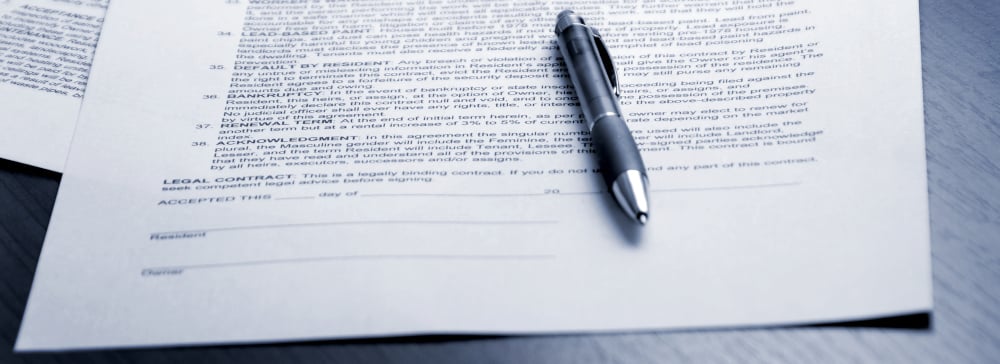
If you suspect that a nursing home staff member is abusing or neglecting your relative, you should act immediately to prevent further misconduct and injuries. You should report the staff member’s abusive behavior to at least one of the following as soon as possible:
- Local law enforcement agencies
- Abuse hotlines
- The Florida Department of Elder Affairs
- Local or regional ombudsman
After reporting the abuse and taking steps to protect and relocate your loved one, it is also in your best interest to consult a Florida nursing home abuse attorney as soon as possible. The experienced lawyers at Kogan & DiSalvo will review your case for free and discuss your legal options.
Contact a Florida Nursing Home Abuse Lawyer Today
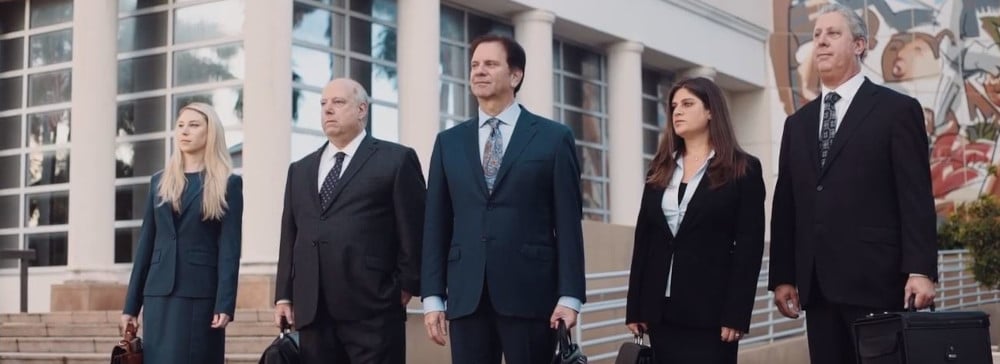
Litigation involving nursing home abuse and neglect is a complex area of law. If you or a loved one has been mistreated in a care facility, it is crucially important to work with an experienced Florida injury attorney who has the knowledge and resources to build a strong case on your behalf and fight for the compensation you deserve.
Kogan & DiSalvo has been representing families in nursing home cases for more than 25 years. We understand the challenges in these claims, and we are committed to protecting your rights and pursuing fair recovery of your damages. The majority of our attorneys are Board-Certified in Civil Trial Law by The Florida Bar. We are not afraid to take cases to court and go up against large, powerful nursing homes and their insurers.
Please call Kogan & DiSalvo at (561) 375-9500 today for a free evaluation of your case. Our nursing home abuse lawyers serve clients throughout Florida, including West Palm Beach, Boca Raton, Boynton Beach, Stuart, Fort Lauderdale, Delray Beach, and other communities.
 (561) 375-9500
(561) 375-9500







